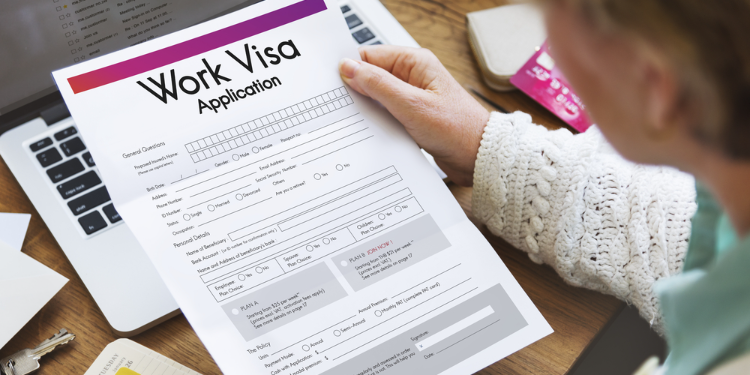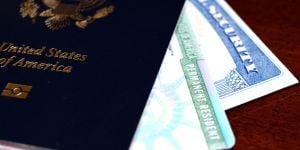
In most countries, the only test that expats need to take for their work visa is a language test. Many countries, notably Australia, also ask their professional bodies to assess expats' previous qualifications and experience before agreeing to issue a work visa. Kuwait is taking a step ahead by making work visa applicants take two exams.
A language test proving elementary to intermediate proficiency is required for many work visas
Work visa applications sometimes require elementary or intermediate proficiency in the official language of the country. This makes sense because expats will have to live and work in environments where it is the main language of communication, even when one or two foreign languages are also used in a company.
In France and Germany, no French or German level is required for a work visa. Those whose French visa requires them to sign an “integration contract” (contrat d'intégration) might need to attend French classes once they're in the country. In Germany, while normal work visas don't require a German language test, those who apply for the new jobseeker visa (which allows expats to enter Germany before even finding a job) need to show proof of B1 (lower intermediate) proficiency in German through a test like the Goethe Institute exam.
English-speaking countries tend to require English-language test results as part of their work visa application. This is the case for Canada, the United Kingdom, Ireland, Australia and New Zealand. The US is an exception: it doesn't have a language requirement for work visas. In Canada, expats applying to work in Quebec need to submit both English and French language test results.
Internationally recognized language tests like the IELTS (International English Language Testing System), TOEFL (Test of English as a Foreign Language) and DELF (Diploma in French Language Studies) are generally accepted everywhere. The UK's Skilled Worker Visa requires a B1 (lower intermediate) in English, which is equivalent to a score of 4 on the IELTS. Some jobs, such as being a doctor in the NHS (public healthcare system), have a higher requirement of 7.0, which is lower advanced proficiency.
In Australia, upper intermediate B2 proficiency (IELTS score: 6) in English is necessary for most work visas. In New Zealand, the score required is only slightly higher: 6.5. In Ireland, the required level ranges from 4 (B1) to 6.5 (B2), depending on the candidate's area of work. In Canada, it is 6 or B2 (upper intermediate). If the expat wants to work in Quebec, they must also show proof of Level 7 on the Quebec Scale of Proficiency in French for Adult Immigrants, which is a B2 (upper intermediate) on the DELF.
Australia assesses expats' non-linguistic professional skills before issuing various visas
Australian work visas don't require only an English language test. Australian professional bodies also need to assess the previous qualifications and experience of applicants for the General Skilled Migration visa, Employer-Sponsored visa, Temporary Skill Shortage visa and Temporary Graduate Visa.
For example, as clarified by the firm Australian Immigration Law Services, expats who are tech professionals will be assessed by the Australian Computer Society. Accountants, auditors and finance managers can be assessed by three bodies – Chartered Accountants Australia and New Zealand (CAANZ), CPA Australia or the Institute of Public Accountants (IPA).
As the website of the Department of Home Affairs says, expats need to contact the relevant authority by themselves. Their visa application will be rejected if the professional body finds their previous skills or experience to be inadequate.
Other countries assess expats' qualifications and experience in a similar but more small-scale way. For example, in the UK, only a more limited list of regulated professions needs to be assessed by British professional bodies. This notably concerns jobs in public education and public healthcare.
Amidst Kuwaitization, Kuwait requires expats in 20 professions to take exams
Kuwait not only assesses applicants' previous qualifications but also makes them take two tests to check if their skills are up-to-date. In September 2022, Kuwaiti authorities announced that expats in 20 professions will now be subject to two exams to be able to obtain their work visa.
They are all professions that are in high demand, for example, in engineering. The Gulf Insider reports that the Public Authority of Manpower, which acts as a Ministry of Labor, indicated that the list will be slowly expanded to include more jobs. The daily Al Qabas also reports that the authorities have hinted that these exams will also be required for renewing one's work visa. Expats already in the country who fail to renew their visa because they failed the exams will be given a grace period to leave the country.
The first exam is a theoretical one and is organized in the Kuwaiti embassy/consulate in the expat's home country. Once he/she has passed it, he/she can travel to Kuwait and take the second exam, which is a more practical one. If an expat fails the second practical exam, his/her sponsor (“kafeel” or employer) is responsible for paying for his/her trip back home.
This new examination system is part of the broader Kuwaitization policy. This policy aims to make the Kuwaiti economy less dependent on expats and give more jobs to local citizens. Many sectors are targeting to have 30-100% local workers over the next decade – 30-60% in the private sector and 100% in the public sector, says Moody's. As such, the requirements to apply for or renew an expat work visa are now stricter. Testing will make only the most skilled expats able to obtain a visa.



















